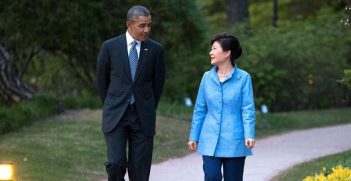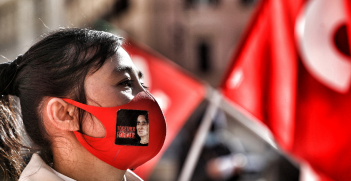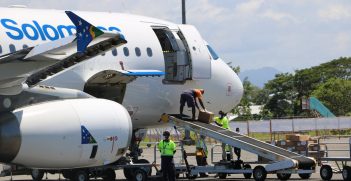G20: Australia Rises to the Occasion
The Brisbane G20 was a considerable achievement – but there’s still work to do, explains Colin Chapman.
An ABC reporter may have shocked viewers by announcing that Tony Abbott was now a $2 trillion man. No, the prime minister had not won a super lottery. He achieved something more significant: a consensus from the leaders of the 20 largest economies to lift growth by 2.1 % over and above present plans over during the next four years. The leaders represent more than four out of five of the world’s people.
The G20 produced 800 new commitments, including a pledge to bring 100 million additional women into the workforce and to force the world’s richest corporations to pay tax where they make profits, rather than in a tax haven.
But perhaps the greatest achievement of G20 is to ensure it remains intact as the world’s leading economic forum. After the disappointment of St Petersburg last year, many commentators had begun to write off the G20.
Australia was determined the Brisbane Summit would break the mould. Thus the preparation, led by G20 Sherpa Heather Smith, was extremely thorough.The result was a tightly-focused agenda aimed at achieving specific outcomes, only partly unpacked by US president Barack Obama, with his pointed “remarks”, as the White House put it, at the University of Queensland.
Australia has shown again it knows how to organise big international meetings. Even Russia’s president, Vladimir Putin, for whom this meeting was not the most comfortable he has attended, praised Prime Minister Abbott for his hospitality and told Russian journalists that the G20 had been “completely constructive and very helpful”.
Media forecasts that Brisbane would be dominated by disagreements between the Anglosphere and Putin were wrong. The suggestion by Phil Coorey, in The Australian Financial Review, that regional rivalries in Europe and the Pacific would ‘overshadow’ G20 proved unfounded. However, many leaders, especially Britain’s David Cameron and Germany’s Angela Merkel, took Abbott’s opening instructions literally, and spoke their minds..
Almost all leaders had bilaterals and trilaterals, and some used public speeches to attempt to reset the agenda. One of the busiest networkers was Indonesia’s new president, Joko Widodo. He met one-to-one with the leaders of China, the US, Japan, Russia, Germany, Australia and France. His message was simply, “I need your help to rebuild our infrastructure”, telling journalists on the flight back to Jakarta what his ‘free and active foreign policy’ meant: “For me it is making friends with countries that can help us”.
President Obama attempted to reshape the agenda through his address to the University of Queensland. In a direct appeal to students to campaign for action in Australia on climate change, he said,”Combating climate change cannot be the work of governments alone. Citizens, especially the next generation, you have to keep raising your voices, because you deserve to live your lives in a world that is cleaner and healthier, and that is sustainable.”
This passage – and a subsequent one where he said he wanted his children and their children to be able to visit an unspoiled Great Barrier Reef – captured media attention. Treasurer Joe Hockey insisted that climate change had been mentioned in all drafts of the communiqué, including what finally emerged. Australia must now set new targets for long-term greenhouse gas emissions by early next year.
Apart from this issue, Australia made significant gains from G20. It will run a new international infrastructure hub in Sydney, to tackle what is calculated to be a $70 trillion gap in needs by 2030. Talks between Abbott, Obama and Abe produced an enhanced defence and economic cooperation deal. At a meeting with South Korea’s President Park, Abbott won an assurance that the FTA will be ratified by year’s end, despite hiccups in the Seoul legislature.
The big win for Australia was the agreement of a free trade treaty with China. It is the most significant trade deal agreed by either country, offering new opportunities for most Australian farmers, and, surprisingly, for services. In a year Minister for Trade and Investment Andrew Robb has concluded three difficult negotiations.
Addresses to Parliament by three world leaders in just five days was a first; all three were of high quality. The last, by India’s prime minister, Narendra Modi, was the standout. The central message from the leader of the world’s largest democracy that he saw Australia as a ‘vital partner in India’s quest for progress and prosperity’: “Today, the world sees Australia at the heart of the Asia Pacific and Indian Ocean region. This dynamic region holds the key to this world’s future; and Australia is at its cross-currents….we welcome its growing role in driving this region’s prosperity and shaping its security.”
The unanswered question is, “will it all work?” Are the commitments made by G20 members real, or mere aspirations. Mike Callaghan, director of the G20 Studies Centre at the Lowy Institute, says Australia can take credit for organising a successful G20: “a vast improvement on previous summits”. But implementation is the key, and Callaghan worries that some countries may be pushed beyond their comfort zones.
However, the IMF and OECD have been commissioned to monitor progress and report back. This is the first time that G20 leaders will be officially marked. It is also the first time they have committed to numerical goals.
Running a successful G20 is a huge challenge. As AIIA Fellow Peter Drysdale put it, “Australia showed its ability to rise to the occasion.” It also backed China’s bid for the 2016 G20. The experience of Brisbane shows that Australia is well placed to help Beijing ensure the value of continuing the debate.
Colin Chapman is immediate past president, AIIA NSW.





